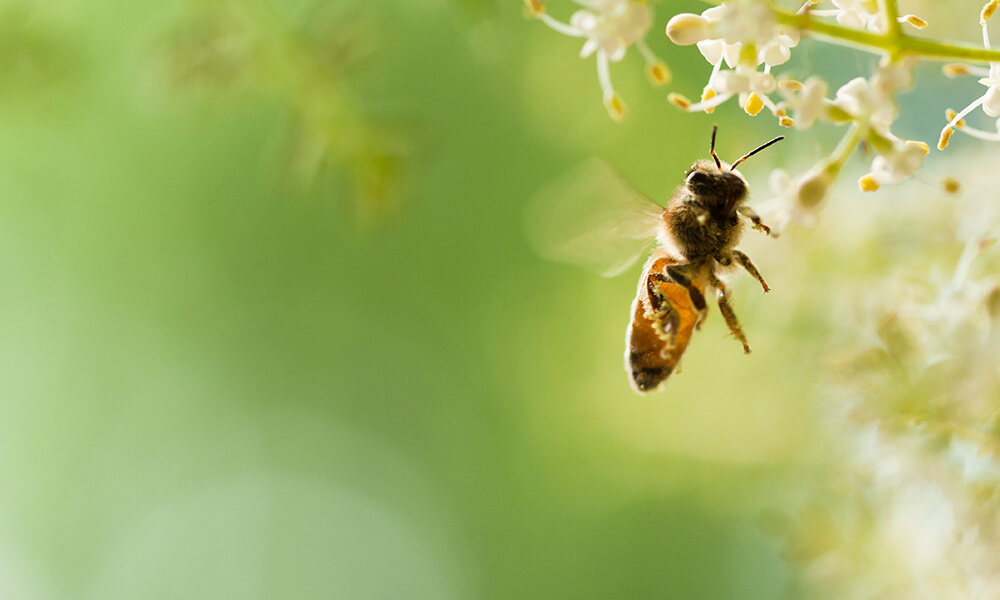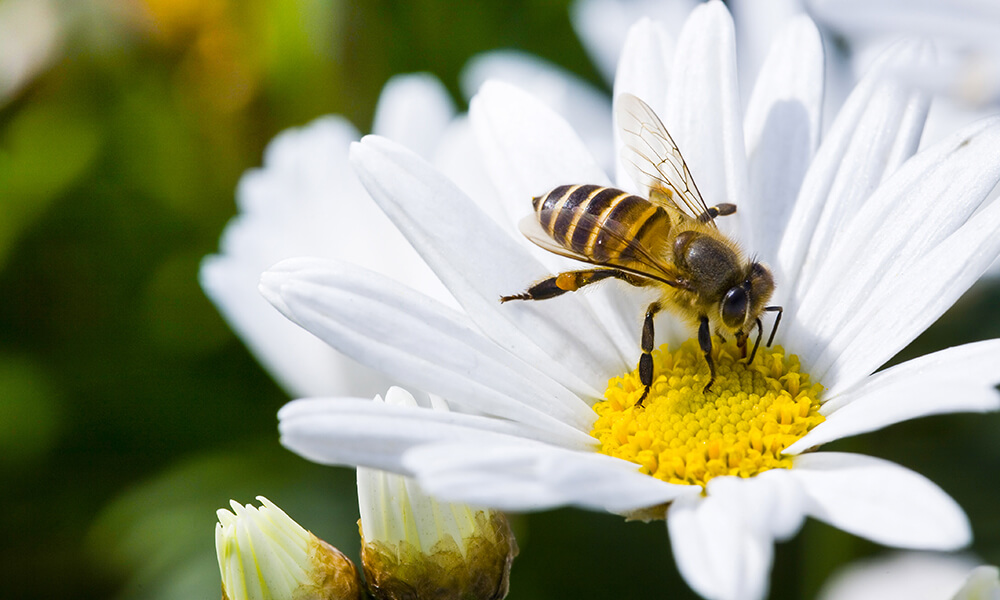Add “Save The Bees” To Your Honey Do List
Add “Save the Bees” to your honey do list
You’ve probably heard the buzz about the world’s struggling bee population, but what’s the big deal? Bees are crucial to a successful agriculture industry. In this blog, we’ll discuss the importance of bees and what you can do to help.
Bees and farmers
Losing the bee population will affect a lot more than your honey consumption. Coffee, avocados, milk, and a whole grocery list of items would become scarce without bees. Bees aren’t just buzzing around your farm for fun, they have a very specific job. Bees are pollinators. That means they transfer pollen between plants to help them grow. This function is vital for the production of cucumbers, pumpkins, cherries, apples and a whole long list of other foods. Without pollination, food yields would struggle to get enough fertilization and crop yields would decrease. Bees also allow plants to reproduce. Some crops, like blueberries, are 90 percent dependent on pollination from bees.
Some farmers install beehives on their property and have increased yields because of it. Crop production and the bee population are intricately linked. Farmers arguably have the most to gain or lose from the survival of bees. The entire livelihood of a farmer depends on his or her crop yields, which depends on pollination and bees. Although farmers depend on bees, they’re just on the front lines. If we don’t find a way to save the bees, everyone will notice.

The bee population affects everyone
Pollination is not just important to farmers, it affects all kinds of industries. For example, the meat industry is heavily dependent on honeybees. Honeybees pollinate soybeans and buckwheat. These two crops are an important source of food for livestock. Without pollination from bees, ranchers won’t be able to feed the livestock that feeds America. Another notable example of an industry that will suffer without bees is the clothing industry. Clothing manufacturers rely on cotton for a majority of their goods. Cotton plants rely on bees for pollination and reproduction. From a business standpoint, the cotton industry generates about $100 billion annually, which means bees are as important to the bottom line as they are to plant growth.
Why are bees dying?
There are many different species of bees, each with a slightly different personality and function. Honeybees, bumblebees, carpenter bees, mason bees and ground bees are all unique and important to the environment. This means that different species of bees respond differently to changes in environmental factors.
The global bee pollination has dropped at an alarming rate in recent years. Potential causes for this dramatic drop include loss of habitat, pesticide use, fungal diseases and Colony Collapse Disorder (CCD). CCD describes the current problem of bee colonies collapsing without explanation. Little information is known about CCD and other causes of the bee population’s decline, which is alarming to farmers, beekeepers, and people overall.

Create a bee-friendly garden
Fortunately, there are ways you can help our buzzing buddies. Planting bee-friendly plants in your garden and around your home help preserve bees’ natural habitat. Look for plants with blue, purple or yellow flowers because bees prefer these colors. This includes lavender, sunflowers and goldenrod plants. Clover is another great way to make your property attractive to bees. Eliminating garden pesticides is another way to contribute to bee preservation. Look for organic and natural alternatives.
Buy local honey
Sweeten the deal with a jar of honey. Support your local beekeepers who produce all-natural, pure honey. This helps keep them in the bee business and you’ll benefit from honey’s natural sweetness. Farmer’s markets and county fairs are great places to find jars of hometown honey.
